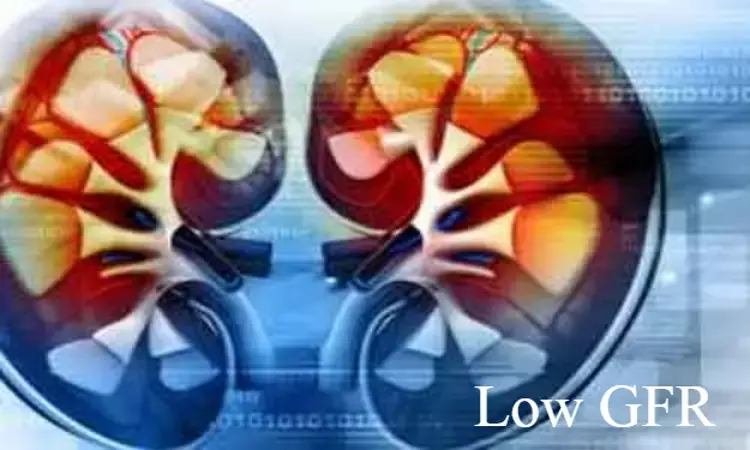- Home
- Medical news & Guidelines
- Anesthesiology
- Cardiology and CTVS
- Critical Care
- Dentistry
- Dermatology
- Diabetes and Endocrinology
- ENT
- Gastroenterology
- Medicine
- Nephrology
- Neurology
- Obstretics-Gynaecology
- Oncology
- Ophthalmology
- Orthopaedics
- Pediatrics-Neonatology
- Psychiatry
- Pulmonology
- Radiology
- Surgery
- Urology
- Laboratory Medicine
- Diet
- Nursing
- Paramedical
- Physiotherapy
- Health news
- Fact Check
- Bone Health Fact Check
- Brain Health Fact Check
- Cancer Related Fact Check
- Child Care Fact Check
- Dental and oral health fact check
- Diabetes and metabolic health fact check
- Diet and Nutrition Fact Check
- Eye and ENT Care Fact Check
- Fitness fact check
- Gut health fact check
- Heart health fact check
- Kidney health fact check
- Medical education fact check
- Men's health fact check
- Respiratory fact check
- Skin and hair care fact check
- Vaccine and Immunization fact check
- Women's health fact check
- AYUSH
- State News
- Andaman and Nicobar Islands
- Andhra Pradesh
- Arunachal Pradesh
- Assam
- Bihar
- Chandigarh
- Chattisgarh
- Dadra and Nagar Haveli
- Daman and Diu
- Delhi
- Goa
- Gujarat
- Haryana
- Himachal Pradesh
- Jammu & Kashmir
- Jharkhand
- Karnataka
- Kerala
- Ladakh
- Lakshadweep
- Madhya Pradesh
- Maharashtra
- Manipur
- Meghalaya
- Mizoram
- Nagaland
- Odisha
- Puducherry
- Punjab
- Rajasthan
- Sikkim
- Tamil Nadu
- Telangana
- Tripura
- Uttar Pradesh
- Uttrakhand
- West Bengal
- Medical Education
- Industry
Continue ACE inhibitors and ARBs in reduced GFR - it has CV benefits

Continuing ACE-I or ARB therapy in patients with declining kidney function may be associated with the cardiovascular benefit.
US: Chronic kidney disease (CKD) independently increases the risk of death and cardiovascular disease (CVD) in the general population. The participants with an estimated glomerular filtration rate (eGFR) decline have a significantly higher risk of all‐cause mortality and cardiovascular events even after adjustment for baseline covariates including the initial eGFR.
The certainty of using drugs that block the renin-angiotensin system in such patients whose estimated GFR is low is been a question. To uncover these researchers from Pennsylvania conducted a retrospective cohort study that was published in JAMA Internal Medicine.
Continuing angiotensin-converting enzyme inhibitors (ACE-Is) and angiotensin II receptor blockers (ARBs) in patients with declining kidney function may deliver cardiovascular benefits without increasing the risk of end-stage kidney disease (ESKD), according to the study.
The retrospective cohort study included 3909 individuals who had initiated ACE-I or ARB therapy and had experienced estimated glomerular filtration rate (eGFR) decrease to <30 mL/min/1.73m2 during therapy. The study was started on 1 January 2004 continued till 25 January 2019. Findings of the study were:
a)Of the 3909 individuals receiving ACE-I or ARB treatment who experienced an eGFR decrease to below 30 mL/min/1.73 m2 female; mean age, 73.7, 1235 discontinued ACE-I or ARB therapy within 6 months after the eGFR decrease and 2674 did not discontinue therapy.
b)A total of 434 patients who discontinued ACE-I or ARB therapy and 786 who did not discontinue therapy died during a median follow-up of 2.9 years.
c)Among the sample, patients who discontinued ACE-I or ARB therapy were associated with a higher risk of mortality (hazard ratio [HR], 1.39; and MACE (HR, 1.37; ), but no statistically significant difference in the risk of ESKD was found.
The authors concluded the findings suggest continuing ACE-I or ARB therapy in patients with declining kidney function may be associated with the cardiovascular benefit without excessive harm of ESKD.
For further reading click on the following link,
MBBS
Dr K B AARTHI-has completed MBBS from SRM UNIVERSITY TAMIL NADU,Her interest is in the field of Pediatrics and Anaesthesia, also passionate in doing research and publishing articles.She joined Medical Dialogues in 2020 and publishes health news and medical updates. Email: editorial@medicaldialogues.in. Contact no. 011-43720751,9786713226
Dr Kamal Kant Kohli-MBBS, DTCD- a chest specialist with more than 30 years of practice and a flair for writing clinical articles, Dr Kamal Kant Kohli joined Medical Dialogues as a Chief Editor of Medical News. Besides writing articles, as an editor, he proofreads and verifies all the medical content published on Medical Dialogues including those coming from journals, studies,medical conferences,guidelines etc. Email: drkohli@medicaldialogues.in. Contact no. 011-43720751


